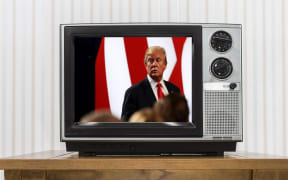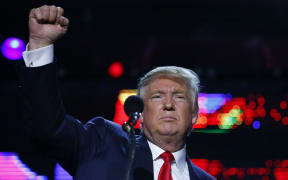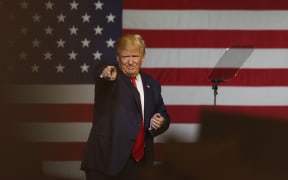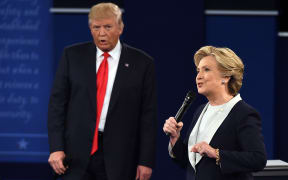Opinion - The coming US election is rigged, according to Donald Trump. He may be right, but the rigging may not occur in the way he has suggested.
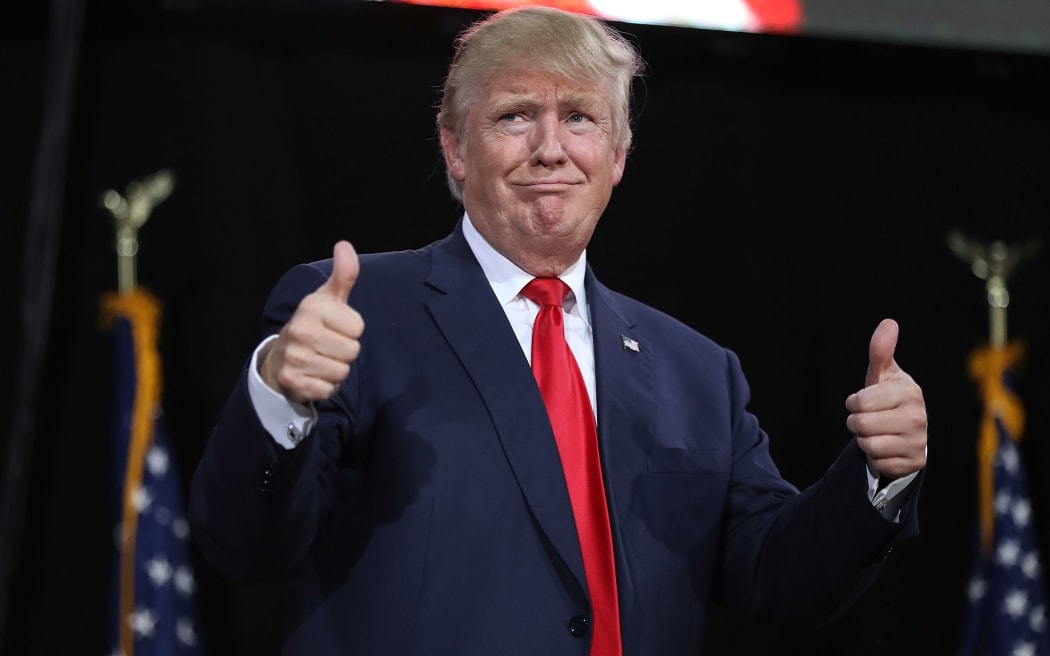
Donald Trump Photo: AFP
First things first. In America it is difficult to rig a nationwide election because there is no nationwide election.
Each state is responsible for its own election and many states delegate it further down to counties, cities and towns.
So, there are about 14,000 separate elections, using as many systems and sets of rules as you can imagine. It's basically a total shemozzle and shemozzles are hard to rig. Russia could play merry hell by fiddling with the state electoral rolls, which it has reportedly hacked, but that way lies chaos without any certain outcome.
Donald Trump, however, insists a number of the states will be rigged (like Ohio and Florida) ... even though those elections are being run by officials from his own party.
That said, manipulating elections on the local scale is an American tradition and it's often completely legal. Here are a few ways to do it.
Gerrymandering
Imagine if Labour's Phil Goff, as the new Auckland mayor, redrew all the Auckland electorate boundaries to make sure that in the next election Labour won every seat. Very do-able, flat-out election rigging, and completely legal in most US states.
Shaping electorate maps to your own advantage is called gerrymandering and is the most effective method of rigging an election. In the US, each state government determines most aspects of all elections - drawing electorate maps, registering voters, drawing up ballots or buying voting machines. So whoever won the previous poker hand can change the rules before the next one.
Gerrymandering is usually obvious, because you tend to end up with odd-shaped electorates. This is where the name comes from. In 1812 Governor Elbridge Gerry of Massachusetts helped his own team by creating a district that looked a bit like a salamander, hence a Gerry-mander. Political satire was still a work in progress in 1812.
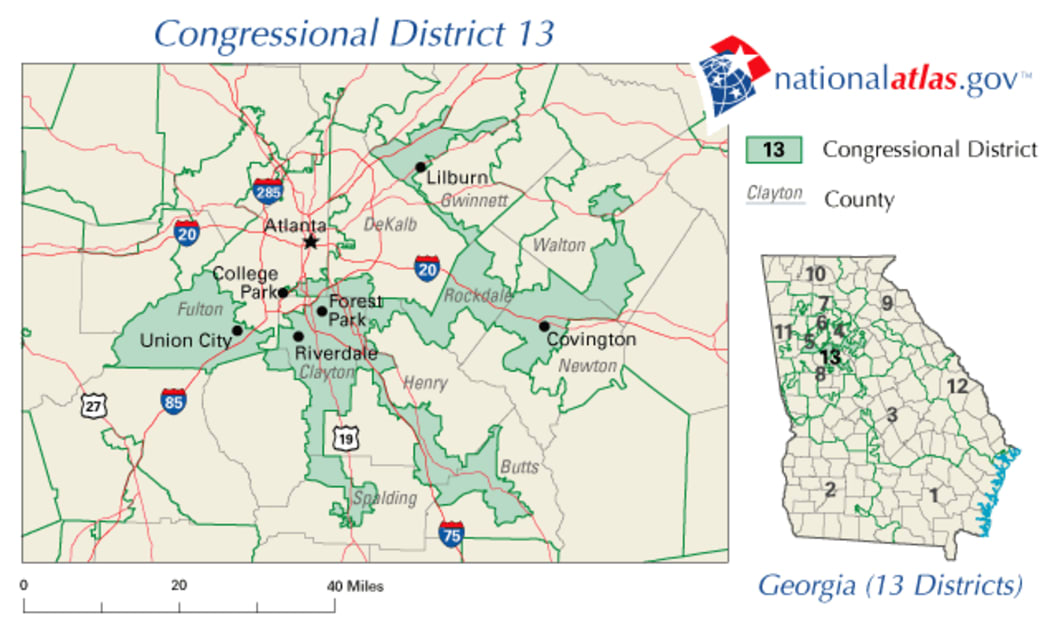
Georgia's 13th House district shows what highly gerrymandered districts look like. The boundary is drawn to create a district that captures as many likely Democratic voters as possible, making that district overwhelmingly Democratic and all the surrounding districts much safer for Republican candidates. Photo: WikiCommons
In recent decades, gerrymandering has been overwhelmingly a Republican tactic, and used to great effect. In the 2012 election, Democrats received 1.5 million more votes, but Republicans won a huge majority of seats in the House of Representatives. This was achieved at the state level - for example in North Carolina the Democrats squeaked in for a 51 percent win, but got just four seats to the Republicans' nine.
This year too, unless Democrats win the national congressional vote by a big margin (6 percent or more), a President Clinton will be massively stymied in what she can achieve, but a President Trump could lose the popular vote and still have a free hand. So, yes, impressively rigged.
As a side-note, before MMP, New Zealand's Māori electorates were surely a form of self-selecting gerrymander. A large demographic block with a tendency towards monolithic party support was removed from the general electorate. This made the Māori seats one-sided affairs, while the general seats were swung slightly the other way by the removal of those voters. This may be why after MMP arrived some politicians saw less reason for the Māori seats.
Disenfranchisment
Identifying demographic groups that favour your opposition and making it harder or impossible for them to vote is also useful tactic.
To varying degrees most states ban felons or former felons from voting. Being poorer and blacker, ex-convicts tend to vote Democratic. In Florida 10.4 percent of the adult population and 31 percent of all black men are barred from voting by this method. That's the equivalent of a 5 percent voting swing which has to be useful (90 percent of African Americans support the democrats).
States also periodically tidy up voting rolls, removing people who have died or been imprisoned. Some states appear to use this as a way to purge pesky minority voters. People's names can be strong indicators of ethnicity and likely voting behaviour. So, if you have a felon named Jesus Gonzales you, might consider purging everyone named Jesus Gonzales 'just to make sure'. (Hispanics break for Clinton 70/19).
A recent Rolling Stone investigation of the Crosscheck programme (which checks for voters registered in multiple states, because states have separate voter rolls), argued it was both flawed and partisan. In a population of 320 million people, the likelihood of multiple people named James Brown that share the same birthday is very high. But you can use that as an excuse to eliminate them all as possible cheats.
Voter suppression
You might consider restricting early voting, which is heavily utilised by poor and minority communities, to stop 'unhelpful' things like black congregations voting en masse after church.
Or you could only make early voting more difficult in areas that favour the opposition. Not politically motivated, just to save money, of course. Or as Republican consultant Carter Wrenn said: "Of course it's political. Why else would you do it? Look, if African Americans voted overwhelmingly Republican, they would have kept early voting right where it was."
Making voter enrolment difficult for opposition voters is another method. This was a favourite method of Jim Crow Dixiecrats, back when the Democratic Party was the natural home of racism. Today it is usually Republican states that create barriers.
You can say 'of course you can enrol to vote, but if you don't have a credit card or a passport, the office is 50kms away and only open for two hours every second Tuesday'. All these shenanigans are more possible since 2013 when the Supreme Court ended Justice Department oversight of Jim Crow states.
The very fact that the election is on a Tuesday is a huge disincentive. Especially if you can create long queues in opposition precincts to dissuade the working poor, who will need to take time off work to participate in democracy.
Blunter tactics will also be used. Official-looking leaflets typically flood minority areas on election day to declare that, because of expected heavy voting, registered Republicans will vote today and registered Democrats will vote 'tomorrow' (i.e. after the election is finished).
Donald Trump's appeal that supporters challenge the legitimacy of voters in minority areas is a form of suppression through intimidation. In some states Republican party officials are specifically barred from doing this because of prior behaviour.
Voter I.D.
The growing clamour for voter identification is vote suppression in the guise of vote security. This is made plain because while the in-person illegal voting it guards against is vanishingly small, the abuse of absentee voting is more common but with no corresponding push to tighten it.
Intent is also made plain by which voters are targeted and by the kinds of I.D. considered acceptable in the Republican states that require voter I.D. A gun licence is fine, a student I.D. is not. A military veteran I.D. is fine, a welfare department I.D. is not. My supporter's I.D. is fine, your supporter's I.D. is not.
Denial of representation
Each state gets two senators regardless of its population, so small states have more political heft. A state's sway in the electoral college that chooses the president is the same as their total number of congressmen, so smaller states also get more sway there.
As a result voters in Wyoming get 3.5 times more sway over the presidential choice than voters in California. That's not rigging, just an oddity.
Voters in the American territory of Puerto Rico, however, get no say at all. Puerto Rico has a bigger population than 21 full states and has only a single House representative and no Senators. It is never likely to achieve statehood because it predictably votes for just one party.
Washington D.C. has a similar problem. Why on earth would one party agree to extend statehood where it would only enlarge the opposition's grasp on the Senate? Democracy, you say? Fair play? Bah, humbug.
Taking all of the above into account, you may be dispirited that such a modern country, so proud of its democracy, could be so bad at carrying off a fair election. There are many people and organisations making valiant efforts to improve the systems where possible. President Barack Obama has said his 'retirement' mission is going to be fighting against gerrymandering. Federal elections however are poorly run.
They could be easily improved. Congress has a constitutional mandate to run federal elections itself, and could do so fairly, simply and democratically but the odds of that happening anytime soon are fairly low. Apart from anything else, if 'the Feds' ran elections, even more people would be sure they were rigged.
*Phil Smith is an award-winning journalist who has reported for RNZ from China, India and Australia. He has spent far too long revelling in the byzantine minutiae of American politics.
